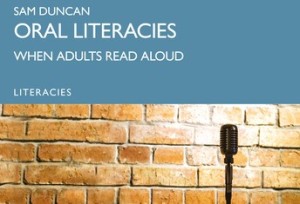Le Gordon Wells
 Anne MacInnes, from Callanish on Lewis, talks to Maggie Smith about her family connections to the Breasclete community and school, where Gaelic Medium Education was pioneered.
Anne MacInnes, from Callanish on Lewis, talks to Maggie Smith about her family connections to the Breasclete community and school, where Gaelic Medium Education was pioneered.
In the first section of this two-part conversation Anne reveals how the Callanish Stones have always attracted tourists, but she recalls from her childhood the cèilidh culture amongst the locals, including many “characters”.
Her career to date has been varied, from Gaelic teaching to working at sea, but she remains attached to a crofting lifestyle, still keeping cattle. Currently at home with a baby, she comes from a musical family, and plays box and pipes. With fewer people now working their crofts she’s noticed a change in the appearance of the township.
A wordlinked transcript, with the video embedded, is available on Clistore here: https://multidict.net/cs/9355
In the second part, Anne and Maggie talk about changes in local culture. Noting that change and development are natural, Anne regrets the loss of local distinctiveness in Gaelic speech. The musical culture is strong. The link with the language should be upheld. There have been various sources of employment, including offshore as well as at the hospital or with the council, plus the nearby pharmaceuticals factory and the community-owned visitor centre. Visitors have included royalty. But the community hall offers a local focus. She remembers some of her grandmother’s special words, and reflects on the value of having family relations all around. It’s important to value what’s past, including local songs, as life goes on.
A wordlinked transcript, with the video embedded, is available on Clistore here: https://multidict.net/cs/9356
Tadhail air Island Voices – Guthan nan Eilean
Powered by WPeMatico

 Calum Alasdair Fraser, from Tolastadh a’ Chaolais, talks to Maggie Smith about his family connections and upbringing on the west side of Lewis.
Calum Alasdair Fraser, from Tolastadh a’ Chaolais, talks to Maggie Smith about his family connections and upbringing on the west side of Lewis.







